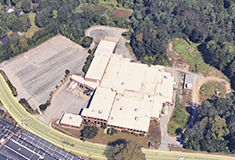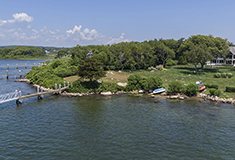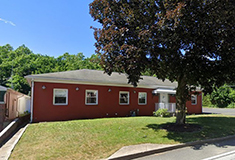News: Rhode Island
Posted: October 20, 2014
Question of the Month: Are we reliving 2006, and is the Boston market a bubble waiting to burst?
It is clear that the New England real estate market has now bifurcated, with Boston continuing to be a scorching hot market while the rest of the region is either cooling off or sputtering along. This raises a question for the Boston market: are we reliving 2006, and is the Boston market a bubble waiting to burst? Although developers and real estate investors are always optimists by nature, warning signs abound to make pessimists of us all - at least over the near term.
Cap rates continue to fall in Boston. The average cap rate in the city as of June 30, was 6.83%, with the cap rates for premium properties hovering around the 4.25% mark. This represents a drop of 7 basis points in the average cap rate, and 50 basis points for premium properties in just one quarter. It also represents a drop of 146 basis points in the average cap rate, and 150 basis points for premium properties in the last five years.* We have not seen cap rates at the current level since 2006, office and retail values are now back at 2006 levels, and apartment and hotel prices per unit now exceed the boom years' peak prices.
Interest rates have been fairly steady but indications are that we will see an uptick in rates after the election. World events are trending in a dangerous direction, and the outbreak of Ebola or an intensification of the never ending Middle East conflicts may combine with economic factors to accelerate an interest rate rise in 2015.
Many are pointing to recent sales in Boston as a positive sign that prices continue to increase and that all is well in the Boston commercial real estate market. However, each buyer requires a seller, and as the Boston Properties presentation at its Investor Conference on September 23, demonstrates, one of the smartest investors active in the local and national markets is selling properties at a rate not seen since before the 2008 market crash. Boston Properties' presentation makes it clear that the company will continue to invest in real estate (it is still buying, but not at a sufficient rate to offset the runoff in its portfolio through sales), but its actions state very clearly that the company views the current situation as a selling opportunity.
So what does this mean for the average real estate developer or investor in Boston? Should every building in the city be put up for sale in a vain attempt by every owner to maximize gains? Clearly, the answer is no; however, the key in this type of market is more fiscal discipline, less leverage, and developing and maintaining a solid plan to avoid getting into the trouble experienced by many in 2008 through 2010, and beyond. Tighten up the credit worthiness of tenants as a tenant not paying rent is more costly in operations and legal expense for a landlord than is empty space. Reduce costs where that is possible. Pay down debt to reduce the loan-to-value ratio on your properties so that the lender remains secure if values decrease. Make plans to operate your buildings as if the bubble will burst. Then work that plan so that you are one of the survivors poised for success when the pendulum swings again and commercial real estate values in Boston come down from the current frothy levels.
* All data is taken from the PwC Real Estate Investor Survey: Investors Ponder Residual Cap Rates (2nd Quarter 2014)
Richard Nadeau is a partner at Partridge Snow & Hahn LLP and chair of the Real Estate Group, Providence, R.I. and Boston, Mass.
Tags:
Rhode Island
MORE FROM Rhode Island
Shawmut Design and Construction breaks ground on the 195 District Park Pavilion in Providence, RI
Providence, RI Shawmut Design and Construction celebrated the ceremonial groundbreaking for the 195 District Park Pavilion, marking the start of construction on a facility that will feature year-round dining and support space for park operations. In addition to the 3,500 s/f building, the project will include infrastructure upgrades








.png)